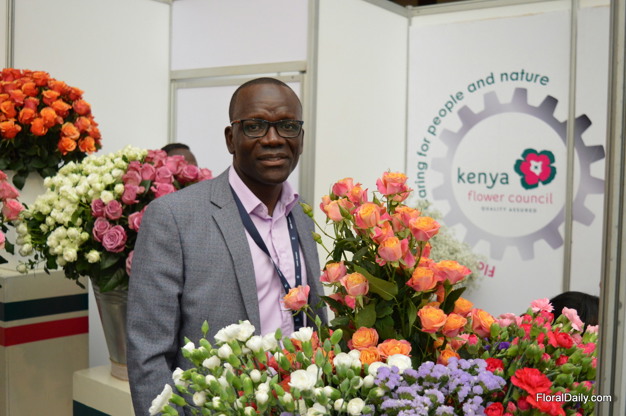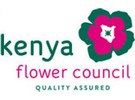Over the years, the imports of cut flowers and foliage arriving in Australia have increased more than threefold. Kenya is one of their main suppliers and they exported 110 million USD to this country in 2018. However, further growth in this country is becoming more challenging due to Australia's revised import conditions. By July 2019, the Kenyan growers need to comply with the new rules, but if it is possible remains to be seen.

Clement Tulezi at the IFTEX 2019 in Nairobi, Kenya.
"Europe, which is Kenya's main export destination, puts more pressure on using less chemicals and more biologicals. This includes beneficiary insects, but Australia has a lengthy list of quarantine pests. It’s possible that biologicals may be on this list", says Clement Tulezi, CEO at Kenya Flower Council (KFC). "So, if they shake the bunch of flowers, nothing should fall out. To achieve this, they want Kenyan growers to treat the flowers on-shore. However, we do not have the infrastructure for large scale treatment, and is, therefore, giving growers a hard time."
According to Tulezi, 22 growers are exporting their flowers to Kenya and these companies, around 22 percent of their volumes go to Australia. "Their only option to continue exports to this country is fumigation. We have to understand the cost involved and the effect it has on the product before shipment. It puts us all in a difficult position and we as Kenya Flower Council together with the Kenya Plant and Health Inspectorate services (KEPHIS) and other private sector bodies are working hard to find an alternative or solution to comply with the rules before the deadline."
 Kenya Flower Council
Kenya Flower CouncilSuite 12, 4th Floor,
The Greenhouse Building,
Adams Arcade, along Ngong Road
Mobile: (254) (0)733 639 523
[email protected]
kenyaflowercouncil.org
